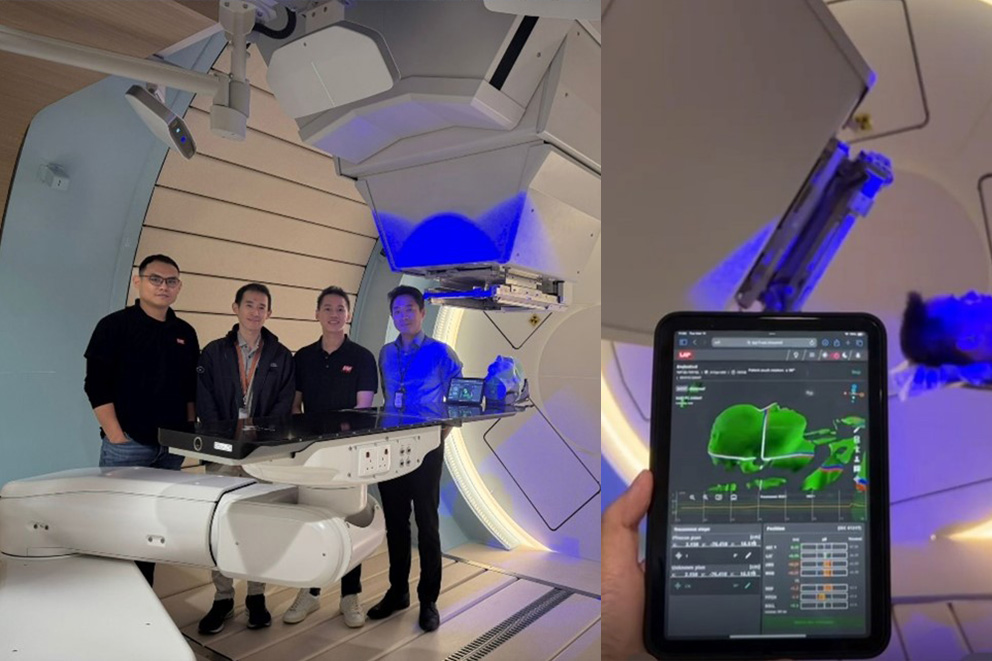LAP Announces New Research Collaboration Using LUNA 3D SGRT in Proton Therapy
LAP GmbH Laser Applikationen (LAP) is pleased to announce a research collaboration with the National Cancer Centre Singapore (NCCS) that will study the use of LUNA 3D, LAP's innovative Surface-Guided Radiation Therapy (SGRT) solution, in proton therapy.
The study will be conducted at the Goh Cheng Liang Proton Therapy Centre at NCCS, a state-of-the-art facility with four full 360-degrees rotating treatment gantries, and a fixed beam room for research purposes. The use of LUNA 3D in this study marks the first-ever global use of this technology, with virtual laser features, with a proton therapy system.
Advancing Immobilization Strategies for Proton Therapy
The primary objective of the study is to evaluate immobilization strategies for future intensity-modulated proton therapy (IMPT) applications. During treatment, it will assess inter-fraction positioning accuracy with six degrees of freedom corrections, reproducibility of patient setup and intra-fraction motion management using the LUNA 3D SGRT system. The study will assess various treatment sites, including the breast and chest wall, thorax and lung, abdomen, pelvis, central nervous system, as well as head and neck.
Enhancing Respiratory Motion Management in Proton Therapy
Another key focus of the study is to evaluate how intra-fraction motion management in proton therapy using surface-based tracking (LUNA 3D SGRT) can complement NCCS' existing proton therapy system's real-time gated positioning tracking (RGPT) of internal fiducial markers (e.g. prostate cases). The aim is to explore how LUNA 3D technology can improve the precision and effectiveness of proton therapy treatments by enhancing patient motion-tracking accuracy.
Leading this study are Clin Assoc Prof Jeffrey Tuan, Division Head of Research, Clin Asst Prof Eric Pang, Deputy Head of Radiotherapy Services, and Asst Prof Tan Hong Qi, Medical Physicist, in the Division of Radiation Oncology at NCCS.
A Milestone in Proton Therapy Research
By investigating innovative techniques for motion management and patient immobilization, the findings from this collaboration will contribute valuable insights towards enhancing treatment precision, workflow efficiency, and patient comfort in future clinical applications.
Clin Assoc Prof Jeffrey Tuan, Senior Consultant and Division Head of Research in the Division of Radiation Oncology at NCCS said: "This study is an exciting opportunity to enhance our understanding of motion management and improve positioning accuracy in proton therapy. We look forward to the potential benefits it may have on patient care."
Lee Tang Nah, CEO of LAP Singapore, said: "This research emphasizes LAP's commitment to advancing innovation in radiation oncology and shaping the future of proton therapy through cutting-edge technology."

